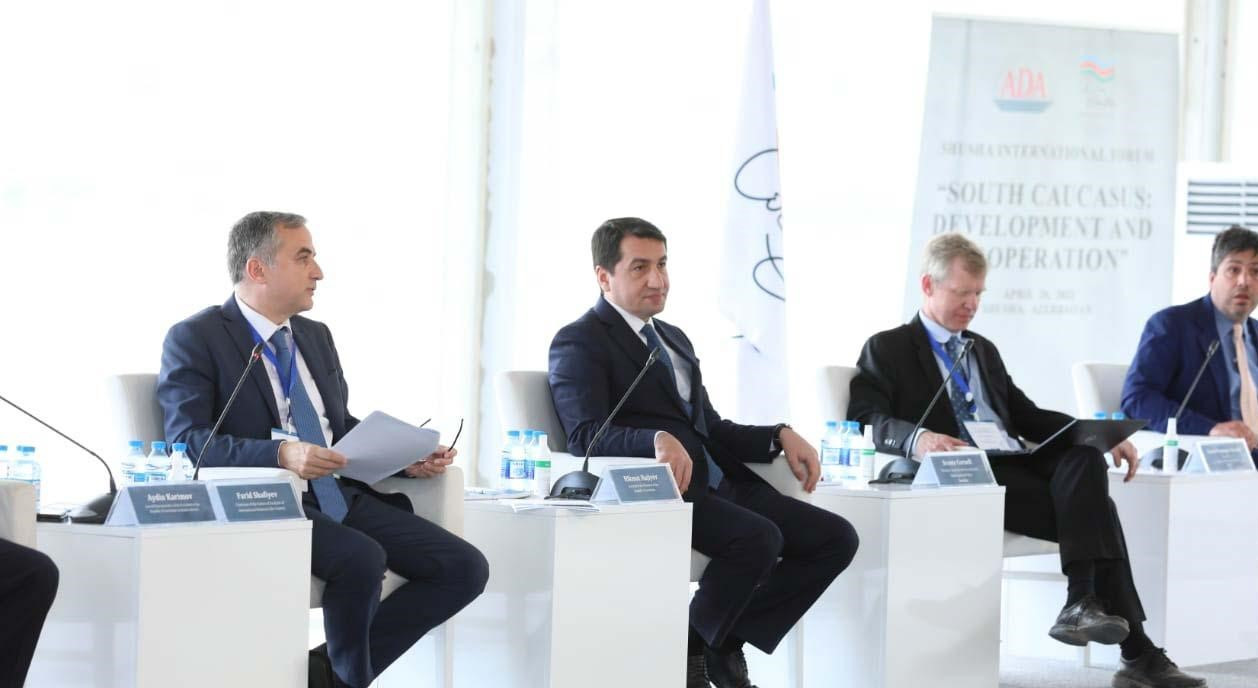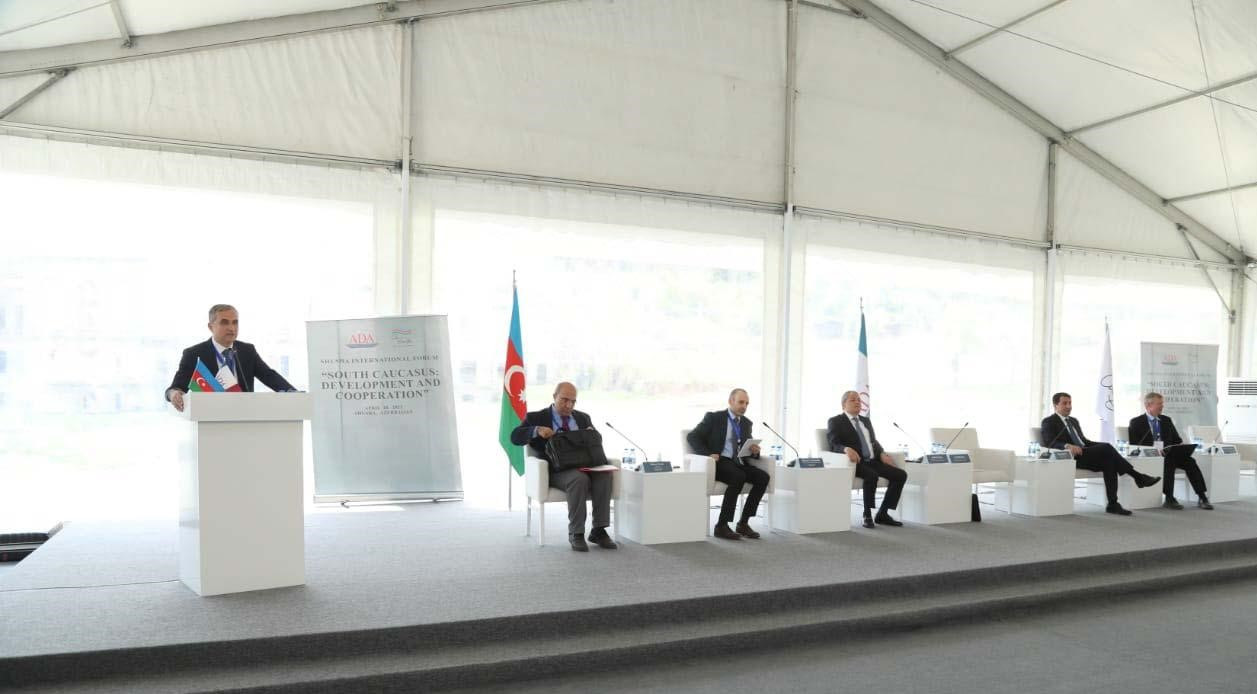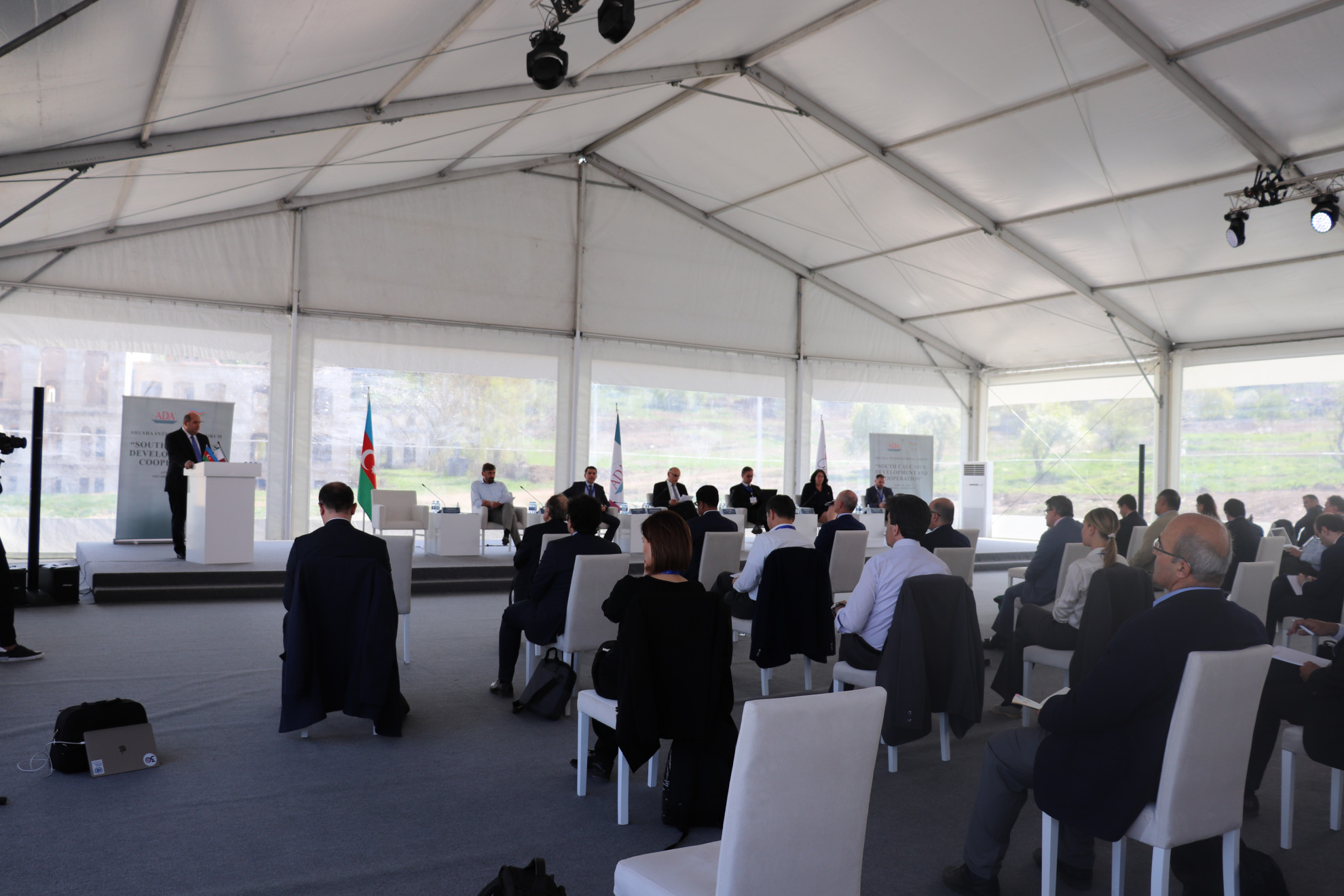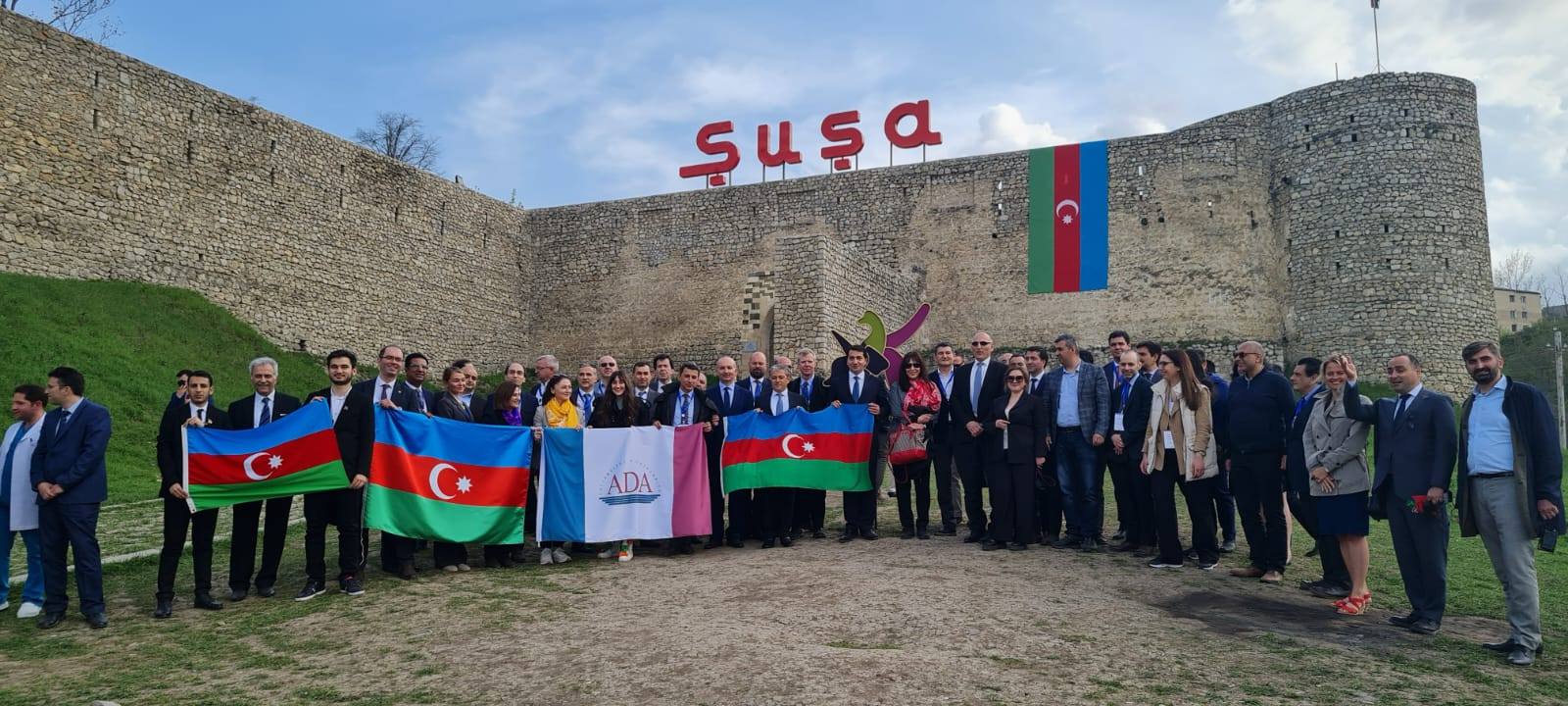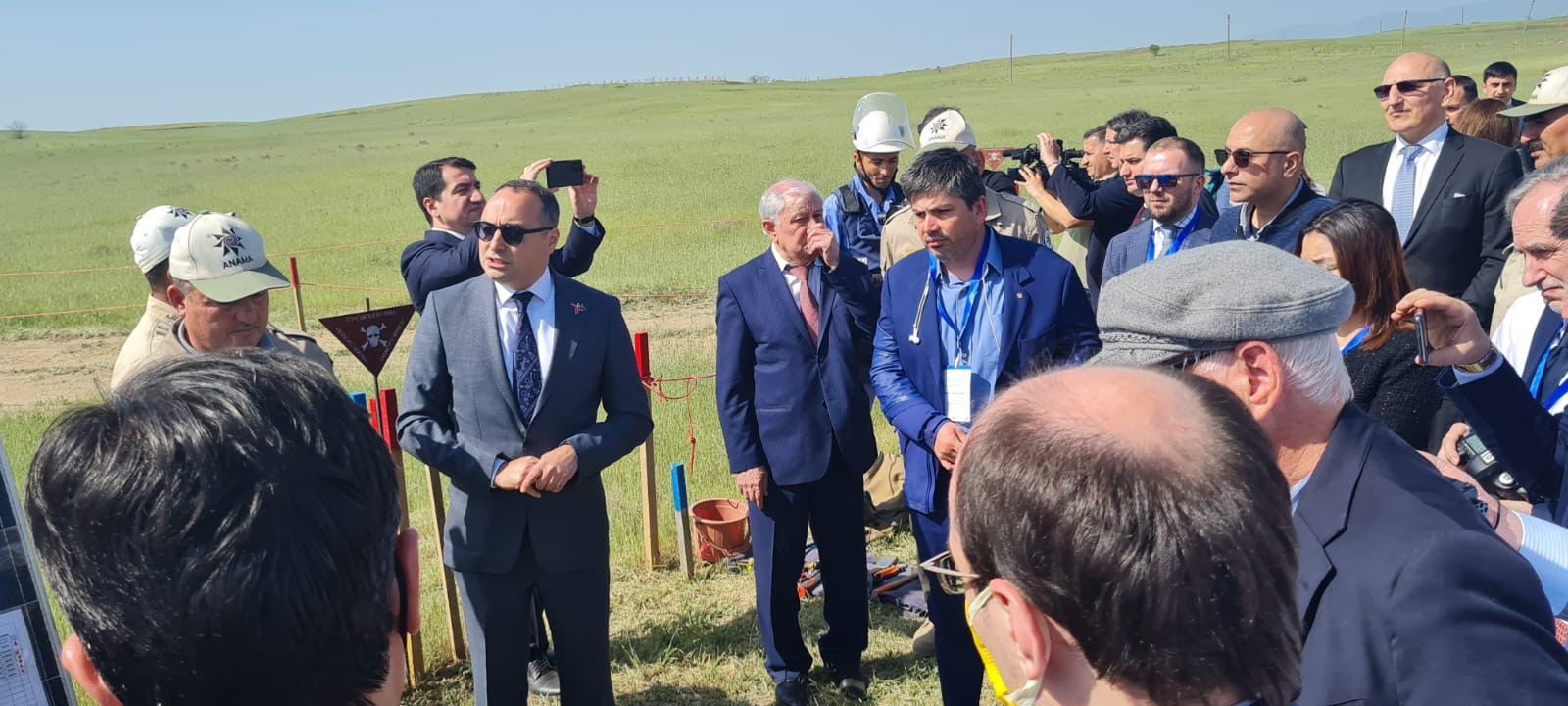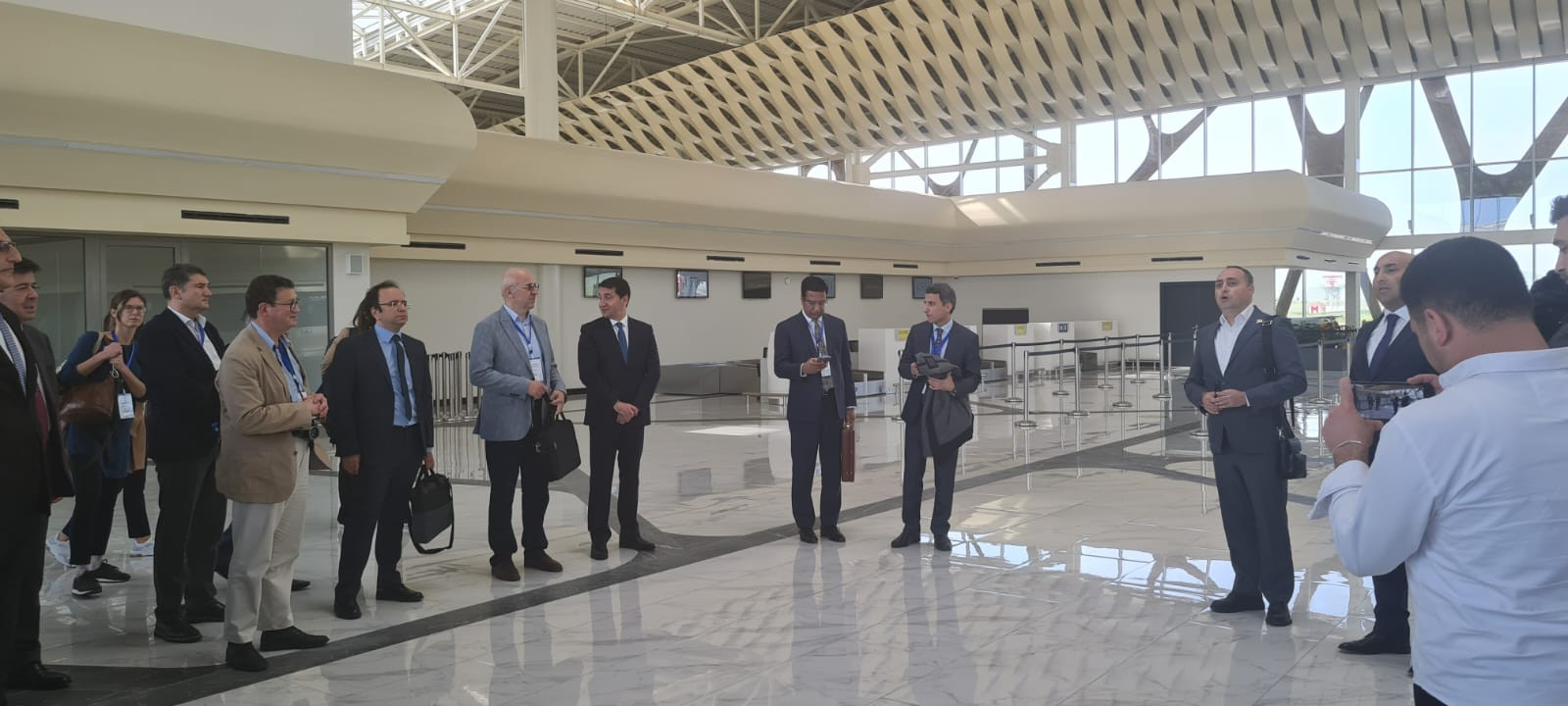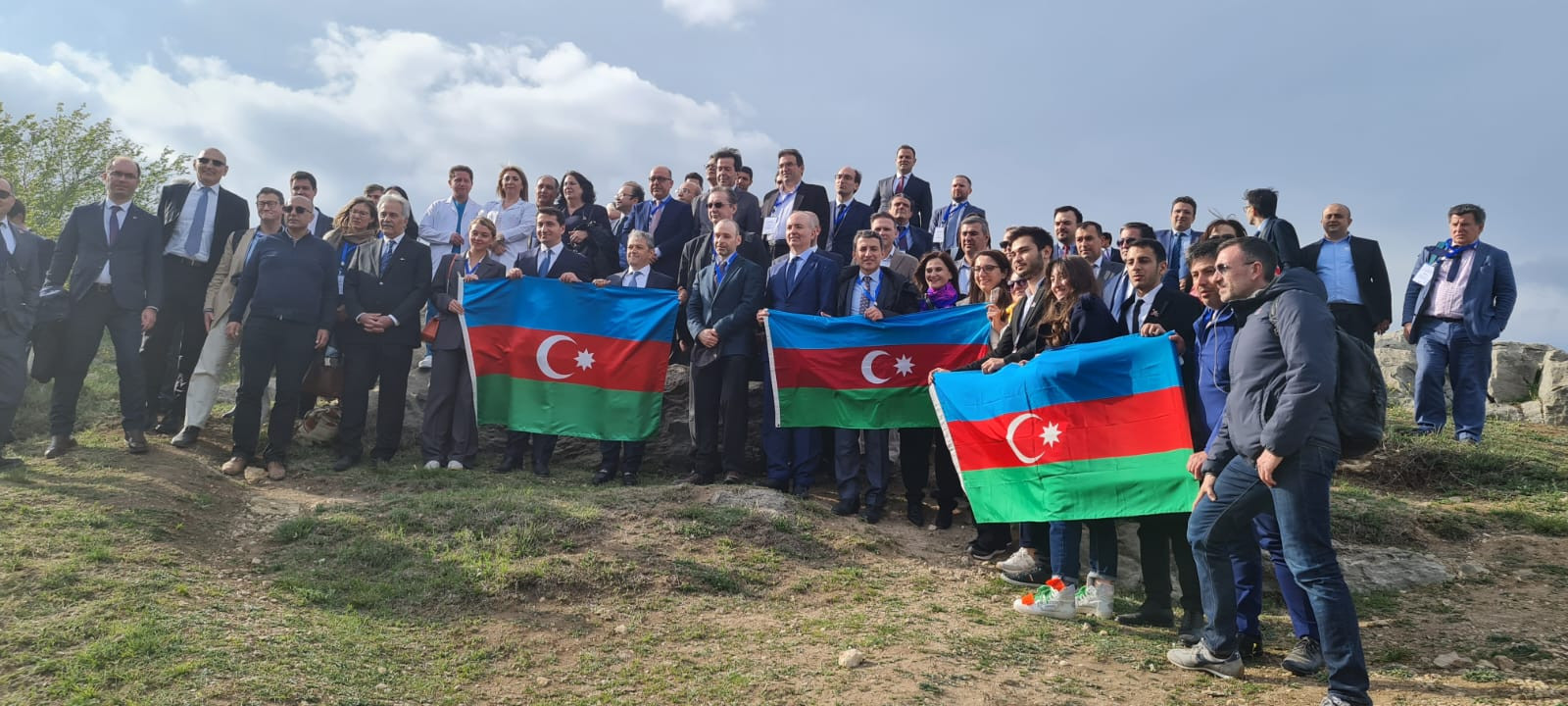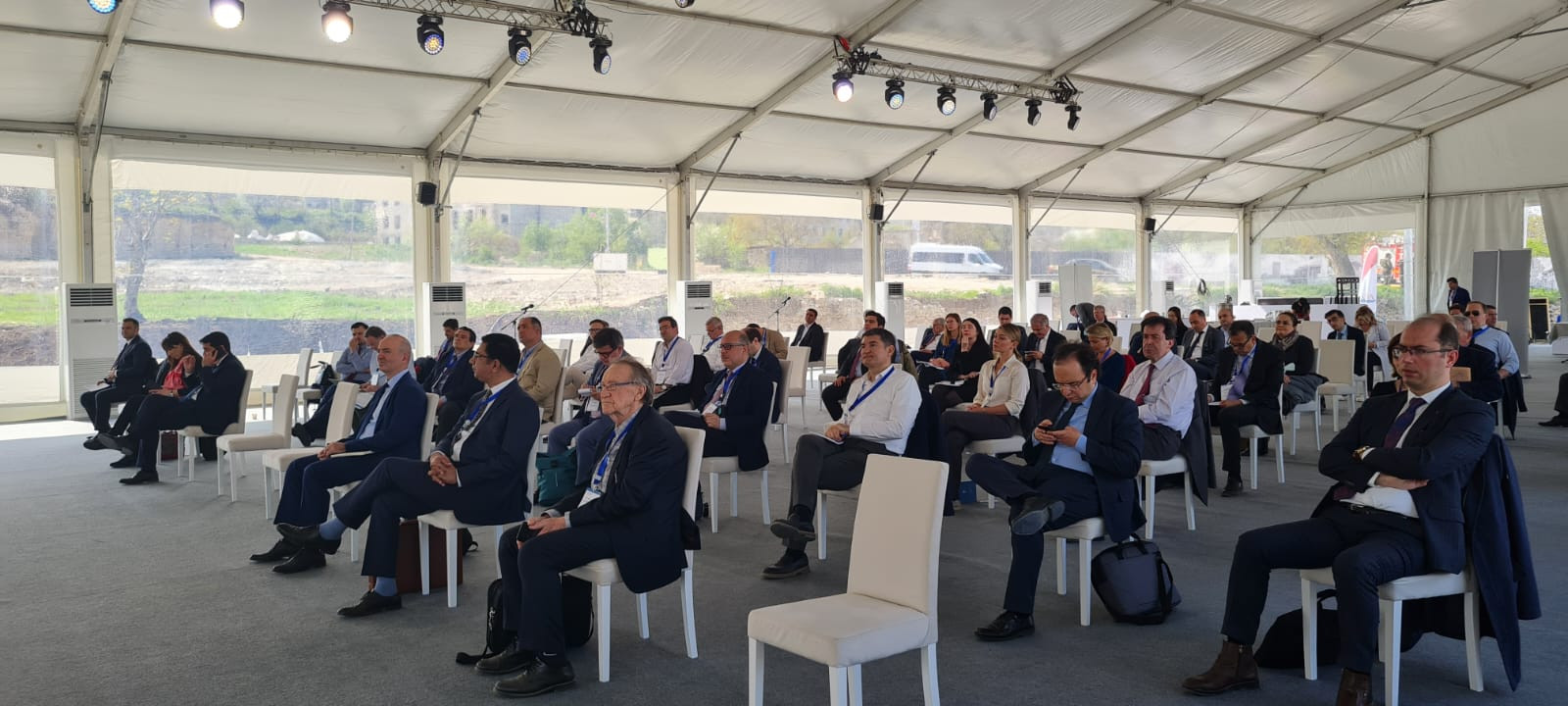An international forum titled "South Caucasus: Development and Cooperation" was jointly organized by the Center of Analysis of International Relations (AIR Center) and ADA University in Shusha city.
The forum was attended by experts, researchers, and media representatives from about 50 foreign think-tanks from more than 20 countries.
After arriving on a plane to the Fuzuli International Airport in Karabakh the forum participants first got acquainted with the airport and then were informed on the demining process in Fuzuli region. Representative of the National Agency for Mine Action of Azerbaijan (ANAMA) Gabil Babayev briefed the guests on the progress of work conducted in the area.
Then guests visited Shusha city bypassing through the “Victory Road”.
The focus of the Shusha forum was to discuss the relations between the countries in the South Caucasus in the post 44-Day War, issues related to the opening of all communications, promoting economic development, normalization process between Armenia and Azerbaijan and overall security and peace agenda in the region.
In his opening speech at the forum, Special Representative of the President of the Republic of Azerbaijan in Shusha Aydin Karimov said that Shusha has hosted various important events over the past year. He noted that such events make important contributions to the future development of the region and long-term peace.
Hikmet Hajiyev, Assistant to the President of the Republic of Azerbaijan-Head of the Department of Foreign Policy Affairs of the Presidential Administration of the Republic of Azerbaijan, highlighted that Shusha is an important city for our country, noting that the Azerbaijani government is implementing large-scale infrastructure projects there. He said that Azerbaijan has taken initial steps towards peace and continues to work to this end. Hikmet Hajiyev noted that with the liberation of Karabakh from occupation, Azerbaijan has created a new reality in the region.
The presidential aide also said that no artillery was used by the Armed Forces of Azerbaijan during the 44-Day War to liberate Shusha, and that the war ended with the victory of Azerbaijan after the deoccupation of Shusha.
Hikmet Hajiyev also stressed the importance of resolving the issue of delimitation and demarcation of borders between Azerbaijan and Armenia.
The Special Representative of the President of the Republic of Azerbaijan, Assistant to the First Vice President Emin Huseynov said that the Armenian side still withholds from providing Azerbaijan with maps of mined areas. Emin Huseynov also noted the accuracy of the minefield maps provided by Armenia is only 25 percent. He stressed that mines still put an end to human lives drawing attention to the fact that since the end of the war, more than 150 people have been killed by landmines, including young people, civilians, and media representatives. Huseynov said that more than 35,000 people have been killed or disabled by landmines since 1992. He articulated that the solution to the mine problem is crucial for Azerbaijan. Therefore, by providing accurate landmine maps Armenia will contribute towards creation of long-term, mutual trust.
Afterwards, the panel discussion titled "Shusha – the path to revival” on reconstruction work in Shusha and "Cooperation, Opportunities and Challenges" on the post-conflict era was held. The panelists were Director of the Institute for Security and Development Policy Svante Cornell, Researcher at the University of Rome Sapienza Daniel Pommier Vincelli, Professor at the University of Utah Hakan Yavuz and Princeton University Associate Professor Michael Reynolds. The forum participants discussed the process of reconstruction and restoration in the post-war period. Various perspectives were shared on how Azerbaijan could implement important infrastructure projects that would help to rebuild the Karabakh region and its future prosperity. They also discussed the mechanisms for ensuring lasting peace in the region, eliminating traditional rivalry and other issues.
It was noted that Azerbaijan has created a new reality in the region after the 44-Day War. This shows that Azerbaijan has an important role in the preservation of stability in the South Caucasus as well as in fostering its economic development. Additionally, a presentation of the book about Shusha written by Daniel Pommier Vincelli, a researcher at the University of Rome Sapienza took place during the panel. Speaking at the event, the author noted that after the publication of this book, he was pressured by the Armenian community in Italy.
The second panel discussion titled "Cooperation, Opportunities and Challenges" was moderated by ADA University Vice Rector Fariz Ismayilzade. The panelists were assistant to the First Vice President, Ambassador Elchin Amirbayov, Professorof the US Navy Postgraduate School Brenda Shaffer, Senior Research Fellow at the IMEMO Center for Post-Soviet Studies Stanislav Pritchin, Head of News and Current Affairs, Georgian Public Broadcaster George Gvimradze and State Counsellor to the Romanian Prime Minister Iulian Chifu.
The panel touched upon the issues of post-conflict regional cooperation and inter-state relations in the region, as well as current and future opportunities in this regard. It was stressed that both Azerbaijan and Armenia have obligations to fulfill in order to ensure cooperation between the two countries. Fulfillment of these obligations will result in the elimination of inter-ethnic tensions and establishment of peace in the region.

